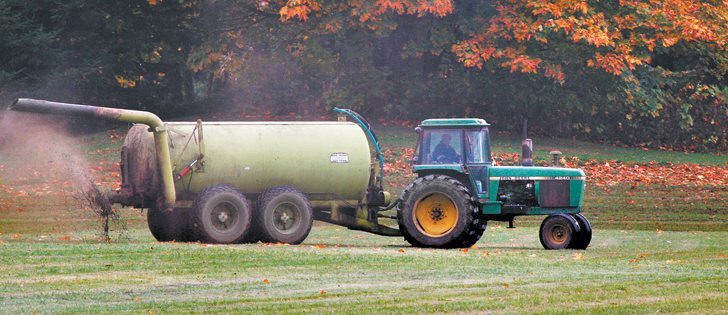Soil bacteria | Antibiotic residue in manure reduced when introduced to this helpful bacteria
Agriculture Canada researchers in London, Ont., have identified a strain of soil bacteria that can help eliminate traces of a common livestock antibiotic from soil.
The lead researcher says it could help clear soil and water of antibiotic residue and reduce the likelihood that antibiotic resistant bacteria will evolve.
Agriculture Canada researcher Ed Topp said the discovery, if confirmed through further testing, could remove antibiotic residue embedded in livestock manure from the soil and reduce the risk that antibiotic-laden manure will flush into waterways.
“I think a major benefit would be that when antibiotic-containing manures are applied to the soil, these residues will be broken down more rapidly and therefore be less available to movement to adjacent waters through runoff or leaching,” he said.
Read Also

Farming Smarter receives financial boost from Alberta government for potato research
Farming Smarter near Lethbridge got a boost to its research equipment, thanks to the Alberta government’s increase in funding for research associations.
“It also could be useful for waste water treatment when antibiotic residue could be an issue.”
The development of antibiotic-resistant bacteria that could make antibiotic treatment for humans less effective has become a growing health issue. Livestock industry use of antibiotics to protect animals from disease and promote growth is often identified as a culprit.
In 1999, Topp and fellow researchers became interested in the issue of whether regular contamination of soil from antibiotic traces in manure could help create antibiotic-immune bacteria.
Their study, which included the antibiotic sulfamethazine (SMZ), a common animal drug, compared residues in soil subjected to regular pig manure spreading with residues in untreated soil.
Topp said the researchers were surprised to discover that antibiotic residue in soil where manure was spread regularly was disappearing much faster than in the soil not subject to regular manure application.
They think the reason is soil micro-bacteria that adjust to long-term antibiotic exposure by mutating to become a micro-organism that uses SMZ as a food source.
Its appetite means that the presence of SMZ in soil decreases five times faster in soil regularly subject to antibiotic contamination than in soil that is not regularly exposed.
“The significance of that, we think, is that soil bacteria can adapt to exposure to these drugs and evolve to be able to use them as a food source,” said Topp.
“The benefit of that is that it would reduce environmental exposure and hopefully reduce pressure on bacteria to develop resistance.”
He said Agriculture Canada researchers recently teamed up with French researchers to continue the work.
Topp also said he hopes Agriculture Canada funding for the project continues.
The fact that it has received funding for almost 14 years is unusual in an era when research funding is typically short term and measures in a few years rather than more than a decade.

















